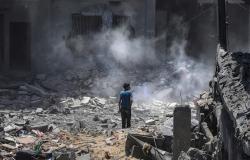In recent weeks, cases of avian influenza in humans have been recorded in various areas of the planet – from Mexico to Australia, from India to the United States, and one person has died. Since 2022, avian flu has caused the death or killing of hundreds of millions of poultry worldwide, more than 15 million in Italy alone. For months, viruses from this family have also been affecting mammals: in doing so, they mutate and adapt to new hosts. With a view to protecting European citizens, in recent hours the EU Commission has signed a four-year contract with which it was awarded 665,000 doses of a pre-pandemic vaccine, produced by an English multinational pharmaceutical company, opting for a further 40 million doses. However, Italy, whose anti-pandemic plan needs to be updated, is not among the countries involved in this agreement. For Slow Food, industrial farms are, once again, risk multipliers for a new pandemic: tens of thousands of fragile animals, in closed spaces and in close contact with each other, where many people who in turn have numerous contacts work, are a perfect bomb.
The virus, which has its origins in wild birds, is spreading rapidly in poultry and beyond: by making jumps in species it is strengthening itself, also putting the health of human beings at risk – he declares Serena Milano, director of Slow Food Italy – it is good that international authorities are concerned about fighting viruses and we hope for an update of our country’s pandemic plan, because pandemics know no borders, as we have experienced with Covid-19. However, we must reflect on the breeding model and intervene to radically change the systems that create the perfect context for their diffusion.” To slow down the advance of the virus, it is not enough to keep animals indoors: often, the means of diffusion is man himself who, due to distraction or carelessness, transports it and spreads it through the shoes he wears, or the tools and machinery he uses. uses and which can easily become contaminated. This also happens in sheds, where chickens, hens, turkeys and geese live without ever seeing sunlight, without ever going outdoors and therefore without having direct contact with wild birds.
Industrial farms are precisely those which, in the event of an outbreak, determine the most serious consequences: a case of positivity to the avian influenza virus in a small-scale farm, where it lives (outdoors and with higher standards of well-being) a small number of animals is easily circumscribed; a sick animal on an industrial farm forces hundreds of thousands of animals to be killed and, subsequently, to compensate the farmers. In Italy alone, and only for the abatements in the first months of 2022, we are talking about 94 million euros. This is why Slow Food Italia sees the avian risk as one more reason to oppose industrial farming, instead supporting those who breed with respect for the land, animals and biodiversity and promoting more careful consumption: fewer products of animal origin, but of better quality .
Contacts: [email protected]
Follow us also on Twitter: @WineNewsIt
Follow us also on Facebook: @winenewsit
This article is taken from the WineNews archive – All rights reserved – Copyright © 2000/2024




